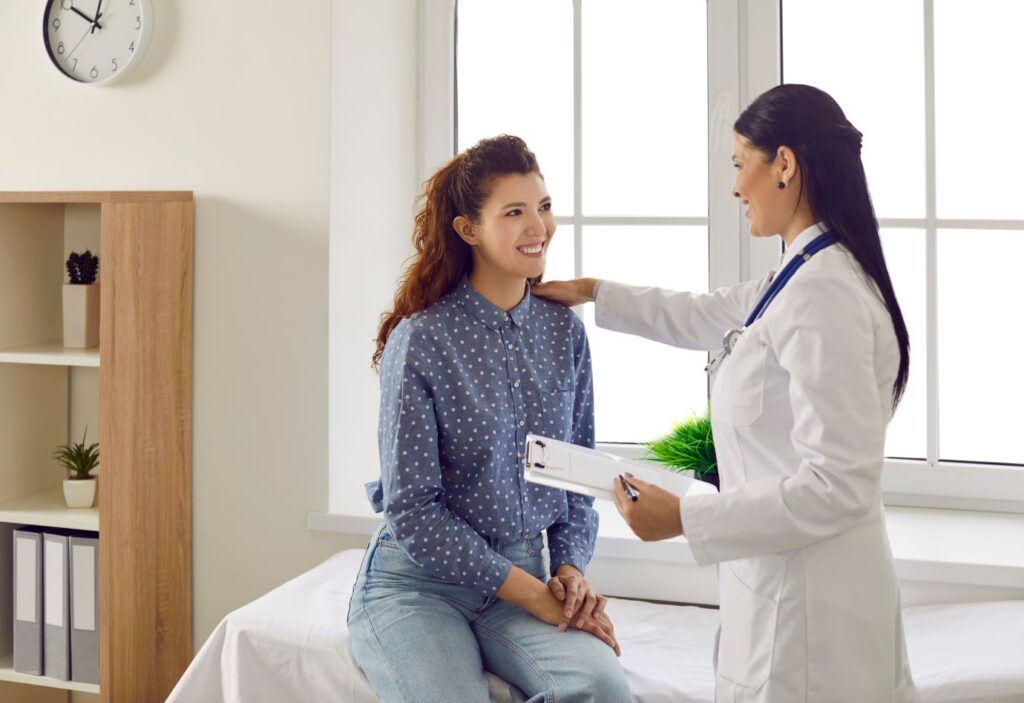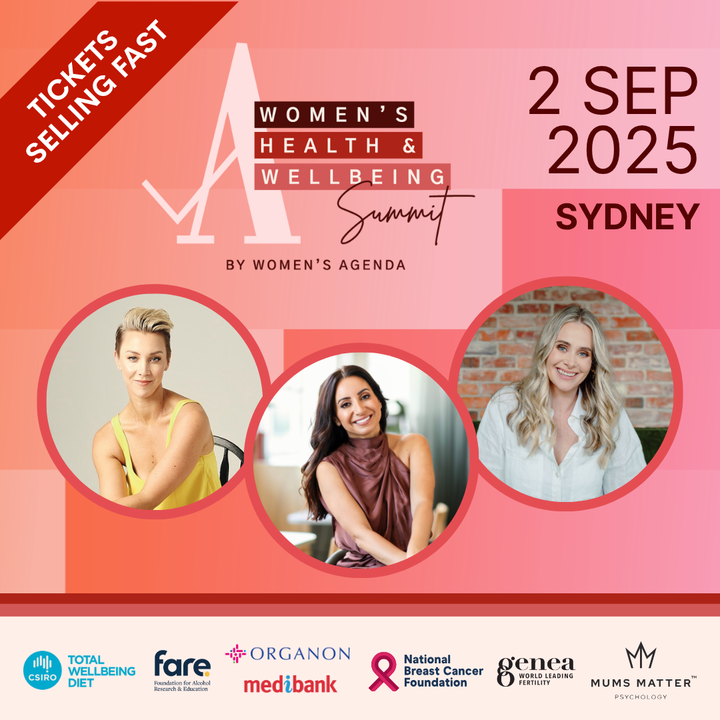This week is Jean Hailes’ Women’s Health Week and the theme is “Grow Your Knowledge”, encouraging and supporting women to make informed decisions about their health.
With that in mind, we’ve put together a snapshot of some recent research and events in the women’s health space that we should all be across this week, and every week. From mental and physical health, to getting better access to healthcare, there are a range of issues noted below.
Key things to know this Women’s Health Week
1 in 2 women in Australia are facing a mental health issue
This statistic comes from a recent survey of 5000 women conducted by the Liptember Foundation, that showed cost of living pressures, and biological factors are impacting women’s health.
It also showed that 1 in 3 women are not seeking the help they need for their mental health because they cannot afford it, with young and middle-aged women in regional areas impacted the most.
Women sacrifice their mental health for others
According to the Liptember Foundation and Waves of Wellness, there is a trend in Australia that sees women sidelining their own mental health while prioritising the concerns of others. It’s one of the reasons the Liptember Foundation is encouraging people to wear bright lipstick throughout the month of September, to highlight the issues facing women when it comes to mental wellbeing.
Australian women need better access to abortion healthcare
A six-month study conducted by Monash University in 2022 highlighted that there is still pervasive stigma and roadblocks to abortion care in Australia. Many of the women who participated in the study described feeling judged by healthcare providers, with some saying their provider made them feel “uncomfortable”, were “stern”, or expressed “zero understanding” of their situation.
“Our study found people seeking abortion care in Australia still experience pervasive stigma and roadblocks to care, and they often feel judged and mistreated by their health care providers,” Dr Shelly Makleff, one of the researchers, said.
Meanwhile, another recent paper, published in the Australian Journal of Primary Health, highlighted how HealthPathways – an online system used in primary care on referral pathways to local services – has very few public services listed for abortion. Thirty-five per cent had no public services listed for medical abortion and almost half had no public services listed for surgical abortion.
Women in regional and rural areas tend to have greater barriers to abortion care. Australia’s first-ever Senate Inquiry into universal access to reproductive healthcare recently released a report on these issues.
In good news, the medical abortion pill has become more accessible, with the Therapeutic Goods Administration recently making a decision to scrap restrictions on the abortion pill, MS-2 Step. It’s a significant move that will see more healthcare providers able to prescribe it, and more pharmacists stock it.
There have also been strides made in the ACT, where residents can now access medical and surgical abortions for free — including those without a Medicare card.
Aboriginal and Torres Strait Islander women face worse health outcomes
Aboriginal and Torres Strait Islander women bear an excessive burden of disease compared to non-Indigenous women across their lifetimes. The life expectancy for First Nations women is 73.7 compared to 83.1 for non-Indigenous women, while they are more likely to experience chronic health conditions.
For First Nations women, maternal death remains 3–5 times higher, perinatal deaths 1.7 times higher with preterm birth almost double. There are also greater barriers to healthcare services, including culturally-safe healthcare services, for First Nations women – particularly those living in regional, rural and remote areas.
Meanwhile, Aboriginal and Torres Strait Islander women are 11 times more likely to die due to assault and are 32 times more likely to be hospitalised due to family violence than non-Indigenous women.
Influencer videos are harming young women’s body image
A recent study from UNSW has highlighted how TikTok and Instagram videos that present unattainable physical appearance standards are harming young women’s body image, with the impacts being worse when the content is perceived to be unedited and natural.
“Girls as young as six reporting unhappiness with their bodies, desires to look thinner, and even dieting to lose weight. Social media isn’t the only place where these appearance ideals are promoted, but there is a lot more opportunity to internalise them through the platforms,” said Dr Jasmine Fardouly, senior author of the study from the School of Psychology at UNSW Science.
A new online program helping mothers experiencing perinatal depression and anxiety
Perinatal depression and anxiety are very common conditions that affect around 1 in 5 women, and have significant adverse health effects for both mothers and infants. The perinatal period includes pregnancy, through to 12 months after birth. New online cognitive beahvioural therapy programs from THIS WAY UP are proving to be helpful for women experiencing perinatal depression and anxiety. THIS WAY UP is part of the Clinical Research Unit for Anxiety and Depression, a joint facility of St Vincent’s Hospital and the University of New South Wales.
Cervical screening self-collection is now an option
Since July 2022, a self-collection option has been available for cervical screening tests in Australia. Women and people with a cervix are now able to opt for this option by taking your own sample – you will be provided with a swab by your healthcare provider and given instructions on how to do the test.
This may be a more appealing option for those who might be anxious about the cervical screening test.
Endometriosis
While there is still significant work to do when it comes to diagnosis and treatment for those with endometriosis, there has been some good news in the research space. A recent breakthrough from Sydney’s Royal hospital for women has seen researchers grow tissue from every known type of endometriosis, observing changes and comparing how they respond to treatments. This increased understanding will allow doctors to better diagnose varying types of endometriosis to ensure patients receive the most effective treatment.
In other news, more than 20 Endometriosis and Pelvic Pain clinics have opened this year, providing expert, multidisciplinary services from specialised staff including nurse practitioners and allied health professionals to care for women with endometriosis and pelvic pain.
Queensland is appointing a Chief Midwife
Queensland is creating a new position of chief midwife and has committed to expanding maternity services after statewide calls to address staffing shortages and working conditions. Recruitment for a chief midwife is underway, with an appointment expected in the coming months, said the state’s Health Minister, Shannan Fentiman.
The announcement follows demands from regional midwives who recently marched on Queensland parliament to call for urgent funding in an “unsafe” maternity crisis.
Australia has a gender exercise gap
Recent research has indicated Australian women are doing much less exercise than men each week – it’s called the “gender exercise gap”, and it’s been highlighted in the ASICS State of Mind Index. This research project that also points out women are potentially missing out on the positive mental and physical benefits that come with doing more exercise.
The index shows that globally, women exercise, on average, for 140 minutes per week, which is 40 minutes less than men, who generally exercise for 180 minutes. In Australia, this gap between men and women jumps to 60 minutes.
New women’s health advisory body in Victoria
The Victorian government has just announced the establishment of a Women’s Health Advisory Council in a bid to improve the outcomes of women’s health in the state. Victoria’s Minister for Health, Mary-Anne Thomas chaired the Council’s first meeting this week, saying: “Listening to the experiences of women is fundamental to the success of our women’s health package and will inform the improvements we want to make to women’s health in Victoria.”


